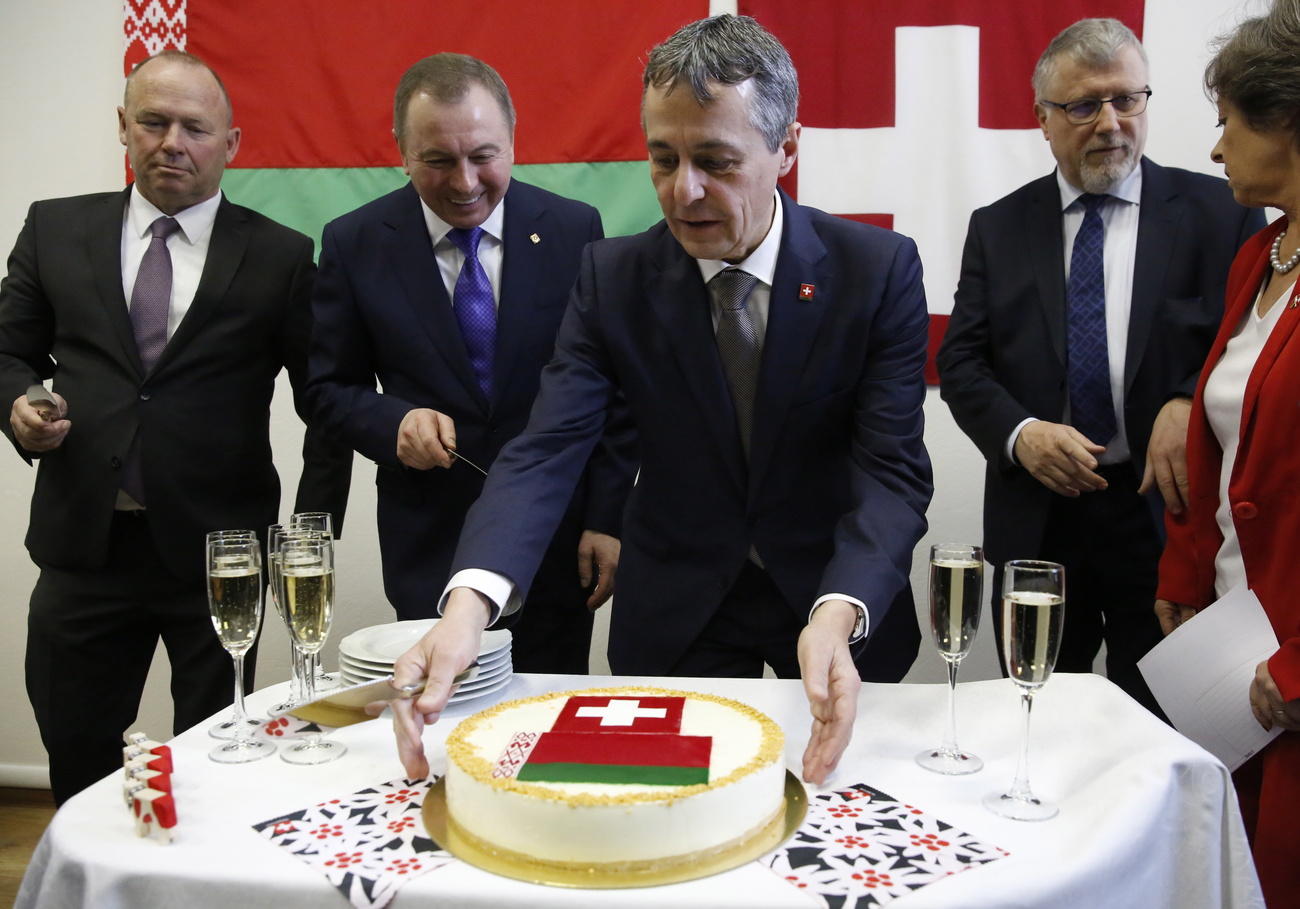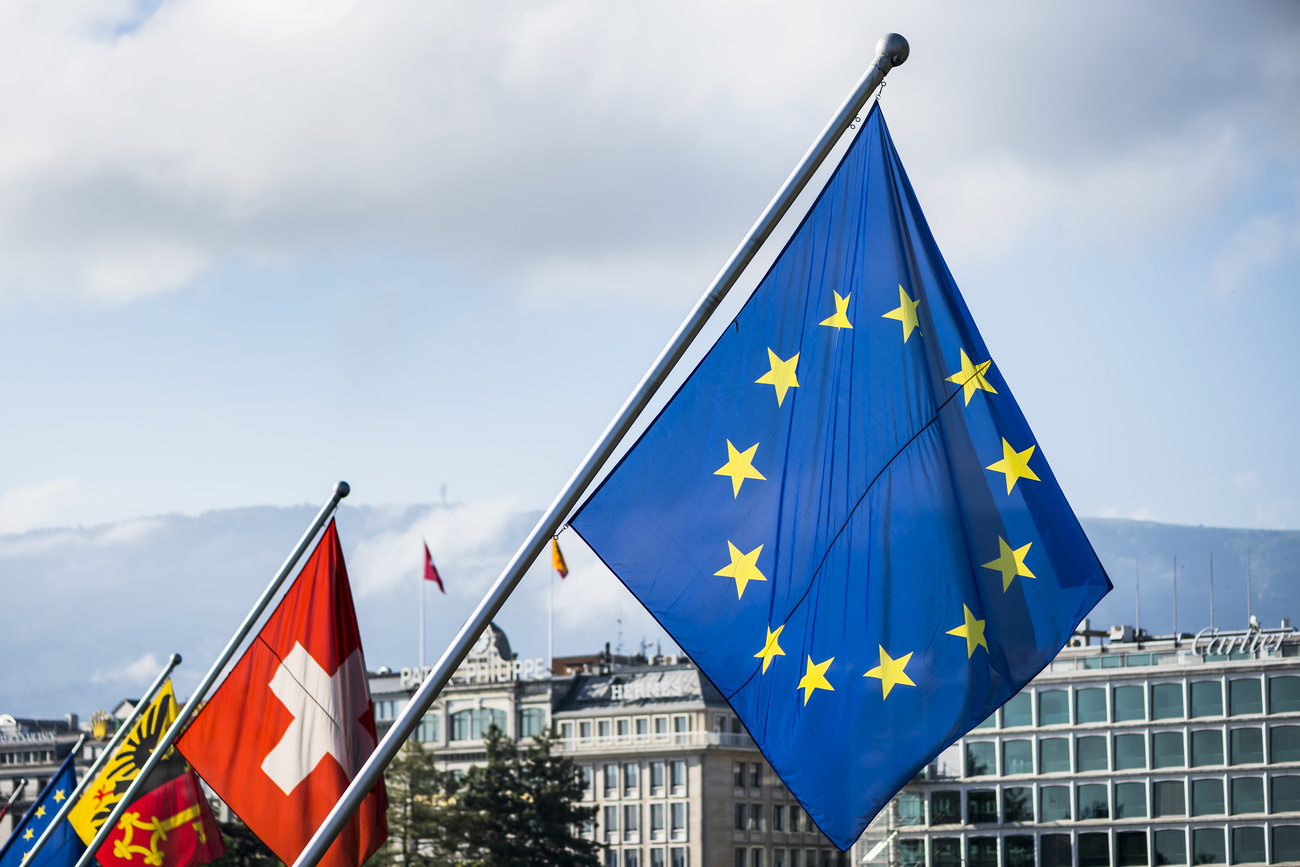
‘Switzerland can’t have its cake and eat it,’ says EU ambassador

After rejecting the framework agreement with the European Union last month, Switzerland must now choose the model for interacting with the bloc’s internal market, says the EU ambassador to Switzerland.
In an opinion pieceExternal link published in Le Temps newspaper on Friday, Petros Mavromichalis warned that the status quo was not an option for the EU.
Citing “substantial differences” on the deal, on May 26 the Swiss government decided to bin a controversial institutional agreement on relations with the European Union.
The decision to walk away meant the end of seven years of efforts between Switzerland and the EU to craft an overarching treaty to replace the more than 120 bilateral deals which have regulated relations for the past decades.
The government cited a lack of agreement on three key points which have hampered progress since a deal was drafted in 2018: salary protection, state aid rules, and the access of EU citizens to Swiss social security benefits.
“For too long the EU has tolerated a situation where Switzerland, a partner and close friend, has enjoyed very broad access to our market while selectively adopting the rules governing it. This is called having your cake (market access) and eating it (regulatory autonomy),” Mavromichalis said.
“This poses a fundamental problem for us because it’s a violation of the sacrosanct principle of equal treatment of States and economic operators. If each participant could freely decide its own rules, the internal market would lose all its meaning because it would be fragmented into a multitude of national and regional sub-markets.”
Three options
As for models for Switzerland’s interaction with the EU’s internal market, Mavromichalis saw three solutions: membership of the European Economic Area (EEA), to which Swiss voters said no in 1992; the framework agreement, “a model tailor-made for Switzerland”; or the erosion of bilateral agreements and a return to simple free trade.
“The continuation of the status quo, in any case, is not an option for the EU,” he insisted.

More
Swiss reject framework agreement deal with EU
He said the debate in Switzerland “tends to confuse market access and free trade. Free trade abolishes only customs duties and quotas, while the internal market aims to abolish all barriers, both tariff and non-tariff, to the free movement of goods, services, persons and capital”.
Brussels pouts
Austrian Chancellor Sebastian Kurz, speaking at an EU summit in Brussels on Friday, proposed giving Switzerland a seat at the next EU summit. The idea would then be to hold a full debate about the bilateral relationship, he said.
The European Commission said this week that it would present details on the future of relations with Switzerland in autumn, based on an in-depth analysis.
Maroš Šefčovič, Vice-President of the European Commission for Interinstitutional Relations, said on Wednesday that the Commission was determined to find the “best possible solution” with Switzerland, but that some sort of general frame was needed to solve the problems between the two sides.
Šefčovič’s comments came a day after the European Affairs ministers of the 27 EU member states discussed the Swiss question. The end of the framework deal was a “regrettable decision”, said Portuguese minister Ana Paula Zacarias, who said her country “wanted a strong and close partnership with Switzerland”.

More
EU remains cagey but firm about future Swiss approach

In compliance with the JTI standards
More: SWI swissinfo.ch certified by the Journalism Trust Initiative




























You can find an overview of ongoing debates with our journalists here . Please join us!
If you want to start a conversation about a topic raised in this article or want to report factual errors, email us at english@swissinfo.ch.